ROHINGYA REFUGEES: $950m needed in next 10 months
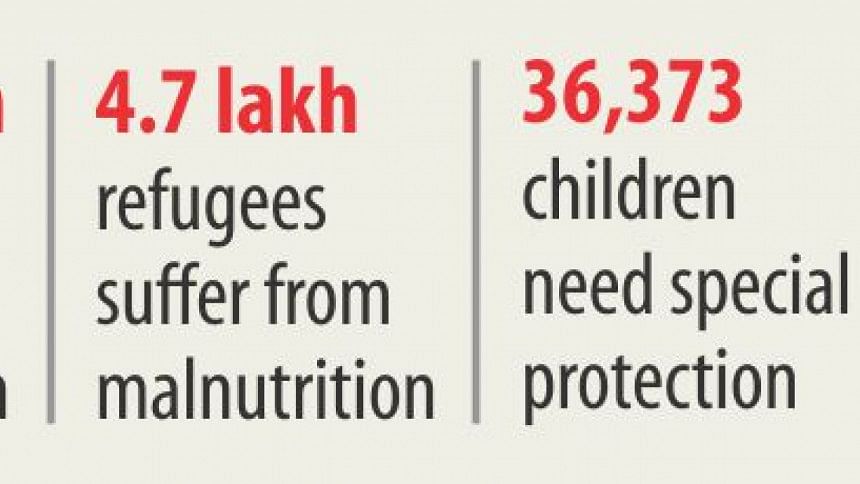
The United Nations and the Bangladesh government have prepared a plan to provide an assistance of $950 million to the Rohingya refugees and the vulnerable locals in Cox's Bazar for 10 months until December.
The move comes amid concerns that the repatriation of the refugees would take time.
The amount is more than double the money ($434 million) initially planned for the Rohingyas as emergency humanitarian aid for six months till February. The donor countries, however, contributed around $400 million.
The joint response plan (March-December 2018) would be launched in Geneva this week, UN Resident Coordinator Mia Seppo told The Daily Star at her office in the capital on March 1
It is going to be more challenging to fund this time, she said.
“The joint response plan is looking at the remaining humanitarian need of the Rohingyas and also of the host community. It's really important because as the first responders, the host community should not fall into deeper poverty than they were in,” she said.
According to a humanitarian situation report of the Refugee Relief and Repatriation Commissioner (RRRC) in Cox's Bazar, at least 25 percent of the fund has to be spent for the host communities in Cox's Bazar as they are suffering from rising prices of food, low wages of labour and loss of natural resources, due to the Rohingya influx.
“More than 500 acres of forest land has been cleared in and around the refugee camps as they [Rohingyas] used the trees as firewood,” said RRRC Mohammad Abul Kalam.
A total of 691,320 Rohingyas fled Myanmar until February 25 after its security forces had begun a crackdown in Rakhine on August 25 last year.
Including the previous arrivals, the total number of the Rohingyas registered in Cox's Bazar stands at 10,76,640, the RRRC report says.
In the initial weeks of the influx, the local communities and many individuals rushed to provide humanitarian assistance to the refugees. The Bangladesh government also allocated fund for them. Eventually, the UN and the other aid agencies came forward with emergency aid.
With the funding from the international community, Bangladesh government, the UN and some international NGOs have initially been able to stabilise the huge humanitarian needs, including food, shelter, clothes, healthcare, water and sanitation, education, and protection.
Heavy risks of outbreaks of diseases, including cholera, diphtheria and measles, were contained by prompt vaccination programmes. However, many of the needs in the heavily congested refugee camps in Ukhia remain unmet, according to the RRRC.
The Rohingyas are still fleeing from Rakhine despite a repatriation deal between Myanmar and Bangladesh. The repatriation has not begun yet.
The RRRC said the authorities had already identified some 100,000 Rohingyas living in areas vulnerable to flooding and landslides, and were preparing to relocate them to a new site along the Kutupalong-Balukhali camps. For that, the Bangladesh government has allocated additional 1,500 acres of land, in addition to the initial 2,000 acres, for the Rohingyas.
“There is no alternative to continuing the humanitarian assistance until the repatriation is complete,” Abul Kalam said.
Mia Seppo, also the resident representative of UNDP Bangladesh, said it was critical that the refugees staying in low-lying and steep slopes having risks of flooding and mudslides during rainy season were relocated. Besides, strengthening of shelters, construction and repair of roads within the camps were important given the worries of monsoon.
She said apart from food, shelter, health, water, sanitation, education and protection needs, many of the Rohingya women and children have psychological and health needs as they have been traumatised following the violence in Rakhine.
Mia Seppo said they wanted to make sure that the impact of the massive refugee influx was not too negative on Cox's Bazar, especially on the forest, water, land and various services for the locals.
It was important to arrange alternative energy for the refugees to cook food as well as to ensure forestation in the area that was cleared of forest, she said, adding they also wanted to make sure that there was no tension between the locals and the refugees.
“Global principles about refugees is burden-sharing…Bangladesh did the right thing by keeping its border open and providing asylum [to the Rohingyas], and the international community needs to do the right thing in terms of sharing the burden,” Mia Seppo said.
Rezaul Karim Chowdhury, executive director of COAST Trust, an NGO operating in Cox's Bazar, said further funding for the refugees was important, but at the same time efficient use of the fund was a need of the day.
“Apart from the UN and international aid agencies, local NGOs and the local government also need to be involved in the humanitarian operations to improve efficiency and lower management cost,” he told The Daily Star on March 2.
“Local people are facing economic and environmental pressures due to the Rohingya crisis. There is also tension among the locals. These aspects need to be mitigated urgently,” he added.

 For all latest news, follow The Daily Star's Google News channel.
For all latest news, follow The Daily Star's Google News channel. 


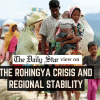
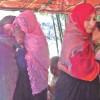
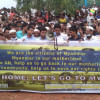
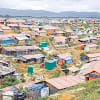


Comments